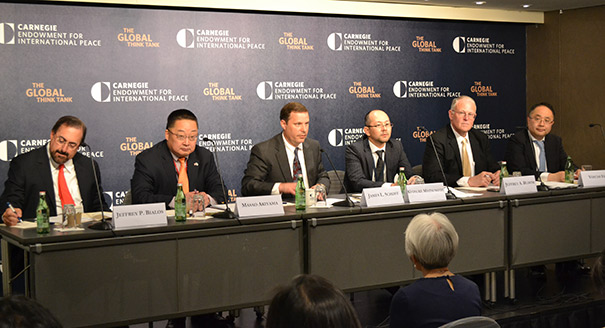Registration
You will receive an email confirming your registration.
In a series of bold steps that could open a new avenue of U.S.-Japan security cooperation, Japan’s government is overhauling the way it develops, procures, and exports defense equipment and technology. This effort coincides with a recent U.S. initiative to address concerns that America’s qualitative advantage in defense technology is eroding. How Japan’s entry into the global arms market will impact the security situation in East Asia depends on how Tokyo implements its new policies, as well as the allies’ ability to capitalize on this opportunity to cooperate.
Carnegie’s James L. Schoff has closely followed Japan’s new defense equipment policies and convened a study group of representatives from the private and public sectors to review the first year of their implementation. At this event, Schoff explained his findings and moderated a discussion on the potential impact of this new frontier of alliance cooperation.
James L. Schoff
James L. Schoff is a senior associate in Carnegie’s Asia Program. His research focuses on U.S.-Japanese relations and regional engagement, Japanese politics and security, and the private sector’s role in Japanese policymaking.
Masao Akiyama
Masao Akiyama is vice president and general manager of aerospace and defense systems at IHI, Inc.
Jeffrey P. Bialos
Jeffrey P. Bialos is a partner at Sutherland, Asbill, & Brennan, LLP and formerly was deputy undersecretary of defense for industrial affairs.
Jeffrey A. Bloom
Jeffrey A. Bloom is the Pacific team lead in the office of the undersecretary of defense for aquisition, technology, & logistics.
Yoichi Iida
Yoichi Iida is director of the aerospace and defense industry division at Japan’s Ministry of Economy, Trade, and Industry.
Kyosuke Matsumoto
Kyosuke Matsumoto is political counselor at the Embassy of Japan in Washington, DC.
